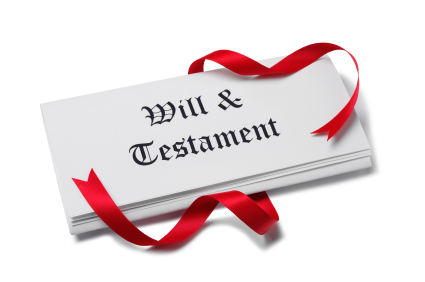
Upon occasion, people die and although their surviving family members are certain that there is an existing Will somewhere, they simply cannot find it, so what happens if a will cannot be found after a death?
This could be because the official document is being held by the legal firm which created it, so it would be well worth checking with them before you do anything else. Wills are sometimes also stored by banks, accountants, other family members, etc. In addition, there is a central register of Wills, however this would only be of benefit if the deceased person whose Will cannot be found went to the trouble of registering their Will during their lifetime. Unfortunately, the percentage of people who undertake this step remains small.
If you still cannot locate a Will, then all is not lost as under certain conditions it is possible to distribute an estate by using a copy of the missing Will during a process known as application for Grant of Probate. Applying for a Grant of Probate is a request by Executors/Representatives of an estate for official legally valid permission to distribute it, and usually requires them to submit an official Will document to a government department known as the Probate Registry. Usually, if a Will cannot be found, then the law assumes that the Will was destroyed by the deceased before their death with the intention of fully revoking it.
However, the above assumption can be overruled, and a copy Will be sufficient PROVIDED THAT the Executors/Representatives can provide clear evidence to demonstrate that it was NOT the deceased’s intention to revoke their Will.
A common example when this applies is when a deceased person left their Will with a solicitor firm or bank and the document has subsequently been mislaid by that firm or bank. Also, the deceased must NOT have arranged a new Will after the one which has been lost. Under these circumstances, as the deceased played no part in the loss of their Will, this clearly demonstrates that it was not their intention for their Will to be revoked.
The lack of an available official Will document potentially means that the law of intestacy would apply instead. This means that all your personal belongings (INCLUDING VEHICLES) pass automatically to your spouse, plus the first £270,000 of your assets. Asset value above this amount is distributed as half for your spouse and the other half is shared equally between your biological children. If you have no spouse, then your estate is shared equally between ALL your biological children.
Therefore, for a copy Will to stand, anyone who will potentially lose out if that copy Will is accepted rather than the law of intestacy as stated above apply, would also need to agree to this situation.
For further details without fear of consultation fees or obligation, please get in touch.


 TRF Wills (TRF) was created by Michael Cotterill in 2005. He is a member of the Society of Will Writers and registered with the Information Commissioner’s Office.
TRF Wills (TRF) was created by Michael Cotterill in 2005. He is a member of the Society of Will Writers and registered with the Information Commissioner’s Office.